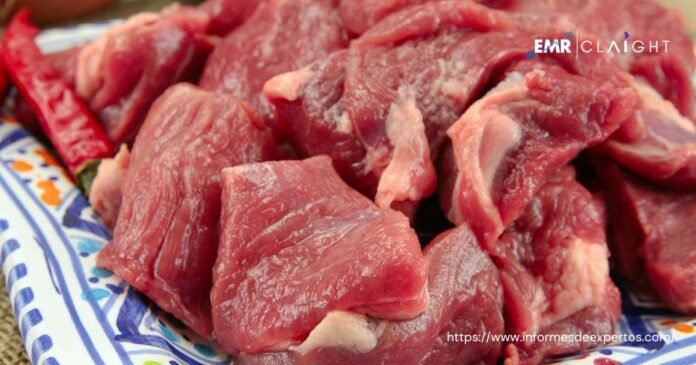The halal food market is a rapidly growing segment of the global food industry, catering to the dietary requirements and preferences of Muslim consumers worldwide. With increasing awareness of halal principles and practices, coupled with the rising Muslim population and changing consumer demographics, the halal food market has emerged as a significant driver of growth and innovation in the food and beverage sector.
Market Overview
Halal refers to food and beverages that are permissible and lawful for consumption according to Islamic dietary laws and principles. Halal food products must adhere to specific criteria and standards outlined in Islamic jurisprudence, including the sourcing of ingredients, methods of preparation, and certification by authorized halal certification bodies.
The halal food market encompasses a wide range of products, including meat, poultry, seafood, dairy, grains, fruits, vegetables, snacks, and processed foods. Halal food manufacturers and producers comply with strict halal requirements throughout the production process to ensure compliance with Islamic dietary laws and meet the needs of Muslim consumers.
Historical Context
The concept of halal has its roots in Islamic teachings and traditions, dating back to the time of Prophet Muhammad (peace be upon him) and the Quranic injunctions regarding permissible and prohibited foods. Over the centuries, Islamic scholars and jurists have elaborated on the principles of halal, providing guidance on food consumption, slaughter practices, and ethical considerations.
In modern times, the globalization of trade and the movement of people across borders have led to increased demand for halal food products in diverse markets around the world. As Muslim populations grow and consumer preferences evolve, the halal food market has expanded beyond traditional halal markets to encompass a global audience of Muslim and non-Muslim consumers seeking halal-certified products.
Market Dynamics
The halal food market is influenced by various factors, including religious beliefs, cultural traditions, economic conditions, and regulatory frameworks. Islamic dietary laws dictate strict requirements for halal food production, including the sourcing of halal-certified ingredients, adherence to halal processing methods, and certification by recognized halal authorities.
Moreover, consumer preferences and purchasing behavior play a crucial role in shaping the halal food market, with Muslim consumers seeking halal-certified products for reasons of religious observance, dietary restrictions, and ethical considerations. Non-Muslim consumers also contribute to the growth of the halal food market, driven by perceptions of halal food as wholesome, hygienic, and ethically produced.
Market Size and Trends
In 2023, the halal food market is expected to reach a value of approximately USD 1.33 trillion. The market is estimated to grow at a compound annual growth rate (CAGR) of 6.5% between 2024 and 2032, reaching a value of USD 2.35 trillion in 2032. This growth trajectory reflects increasing demand for halal food products across global markets, driven by factors such as population growth, urbanization, and rising disposable incomes.
Furthermore, emerging trends in the halal food market include the diversification of product offerings, the adoption of halal certification standards, and the expansion of halal food distribution channels. Halal-certified products are not only limited to traditional categories such as meat and poultry but also include a wide range of processed foods, beverages, confectionery, and pharmaceuticals.
Key Players
The halal food market is served by a diverse array of companies, including food manufacturers, producers, distributors, and retailers specializing in halal-certified products. Some of the key players in the global halal food market include:
- Nestlé: A multinational food and beverage company, Nestlé offers a wide range of halal-certified products, including dairy, confectionery, beverages, and infant nutrition, catering to the needs of Muslim consumers worldwide.
- Cargill: A leading agricultural and food processing company, Cargill produces halal-certified meat, poultry, grains, and ingredients for food manufacturers and retailers, ensuring compliance with halal standards and regulations.
- Al Islami Foods: A prominent halal food brand based in the United Arab Emirates, Al Islami Foods specializes in halal-certified meat, poultry, seafood, and convenience foods, serving consumers in the Middle East and beyond.
- Tayyib Foods: A UK-based halal food company, Tayyib Foods offers a range of halal-certified products, including frozen foods, ready meals, and snacks, targeting Muslim consumers in Europe and other markets.
Future Outlook
The future of the halal food market holds significant promise, driven by factors such as population growth, urbanization, changing consumer preferences, and technological advancements in food production and distribution. As the global halal food market continues to expand, opportunities for innovation, investment, and collaboration will emerge, enabling companies to meet the diverse needs of Muslim consumers and capitalize on the growing demand for halal-certified products.
Furthermore, initiatives aimed at standardizing halal certification processes, enhancing transparency in halal supply chains, and promoting halal branding and marketing will contribute to the development and growth of the halal food market on a global scale. By embracing halal principles and practices, food companies can position themselves for success in a competitive and dynamic marketplace while meeting the dietary preferences and cultural sensitivities of Muslim consumers worldwide.





